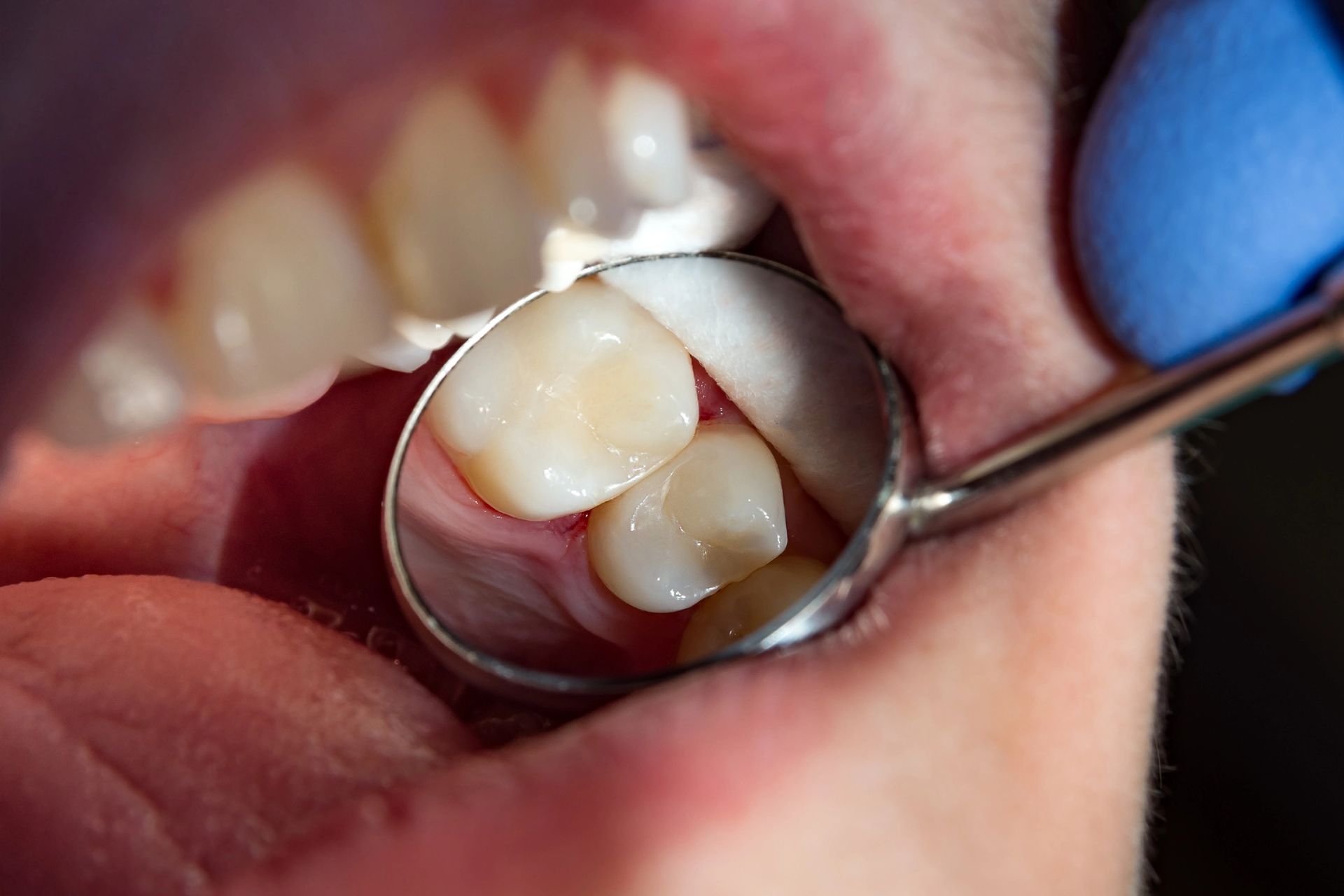
How Long Do Zirconia Crowns Last?
Zirconia crowns are renowned for their durability and strength, making them a popular choice for dental restorations. On average, zirconia crowns can last anywhere from 10 to 15 years, depending on various factors such as oral hygiene practices and the individual's lifestyle. The robust nature of zirconia material contributes to its longevity, providing a reliable solution for those seeking long-term dental restoration options. Understanding how long do zirconia crowns last can help individuals set realistic expectations for their dental care. While zirconia crowns are designed to withstand the pressures of daily use, their lifespan can be influenced by several factors, including the patient's oral habits and overall dental health. Regular dental check-ups and maintaining good oral hygiene can play a significant role in extending the life of these crowns. If you ever find yourself in a situation where your crown becomes dislodged, you might find it helpful to read more about what steps to take by visiting our page on Dental Crown Fell Off What to Do Next to Protect Your Tooth Factors affecting crown longevity The longevity of zirconia crowns can be influenced by several factors, which play a crucial role in determining how long do zirconia crowns last. One of the primary factors is the individual's oral hygiene practices. Regular brushing and flossing can help maintain the integrity of the crown by preventing plaque buildup and gum disease, which can compromise the crown's stability. Additionally, the skill and experience of the dental professional who places the crown can significantly impact its durability. A well-fitted crown is less likely to experience issues such as chipping or loosening over time. Another important factor is the patient's lifestyle habits. For instance, those who engage in teeth grinding or clenching may experience a shorter lifespan for their zirconia crowns due to the excessive pressure exerted on the dental work. Dietary choices also play a role; consuming hard or sticky foods can lead to wear and tear on the crown. Furthermore, regular dental check-ups are essential for monitoring the condition of the crown and addressing any potential issues early on. For those interested in exploring options for dental crowns, you can find more information about Affordable Dental Crowns Columbia by visiting our Affordable Dental Crowns Columbia page. Importance of Regular Dental Check-Ups Understanding how long do zirconia crowns last involves recognizing the crucial role of regular dental check-ups in maintaining their longevity. These appointments allow dental professionals to monitor the condition of your crowns, ensuring they remain in optimal shape and function. Regular check-ups can help identify any potential issues early, such as wear or damage, which might affect the lifespan of your zirconia crowns. By keeping up with these visits, you contribute to the overall health of your dental work and ensure that your zirconia crowns continue to serve you well over time.Role of Oral Hygiene Practices The longevity of zirconia crowns is significantly influenced by the role of oral hygiene practices. Maintaining a consistent and thorough oral care routine can help ensure that zirconia crowns last as long as possible. Regular brushing and flossing are essential to prevent plaque buildup, which can lead to gum disease and affect the stability of the crowns. Additionally, routine dental check-ups play a crucial role in monitoring the condition of the crowns and addressing any potential issues early on. Understanding how long do zirconia crowns last involves recognizing the impact of daily oral hygiene habits on their durability. For those in Columbia seeking more information, Design Dentistry Columbia offers insights into maintaining dental health, and you can learn more by visiting your local Columbia Dentist.
Impact of Dietary Habits
Dietary habits can significantly influence how long zirconia crowns last. Consuming a diet high in sugary foods and acidic beverages may contribute to the wear and tear of dental restorations, including zirconia crowns. These dietary choices can lead to an increased risk of decay around the crown margins, potentially compromising their longevity. On the other hand, a balanced diet that supports overall oral health can help maintain the integrity of zirconia crowns over time. Understanding the relationship between diet and dental health is essential for those looking to maximize the lifespan of their zirconia crowns.Influence of Teeth Grinding
Teeth grinding, also known as bruxism, can significantly impact how long zirconia crowns last. This involuntary habit exerts excessive pressure on dental restorations, including zirconia crowns, potentially leading to premature wear or damage. While zirconia is renowned for its durability and strength, the constant grinding motion can compromise its longevity over time. Understanding the effects of teeth grinding is crucial when considering how long zirconia crowns last, as it highlights the importance of addressing underlying dental habits that may affect their lifespan.Professional Cleaning Frequency
Understanding the professional cleaning frequency is essential when considering how long do zirconia crowns last. Regular dental check-ups play a crucial role in maintaining the longevity of zirconia crowns. During these visits, dental professionals can assess the condition of the crowns and perform necessary cleanings to prevent plaque buildup and other potential issues. While the specific frequency of professional cleanings may vary based on individual needs, maintaining a consistent schedule with your dentist ensures that zirconia crowns remain in optimal condition, contributing to their durability and lifespan.Signs of Crown Wear and Tear
Understanding the signs of wear and tear on zirconia crowns is essential for anyone curious about how long do zirconia crowns last. Over time, you might notice subtle changes such as slight discoloration or a dulling of the crown's surface, which can indicate natural aging. Additionally, small chips or cracks may appear, especially if the crown has been exposed to excessive force or grinding. These signs can serve as indicators that the crown is experiencing normal wear, which is a factor in determining its longevity. Regular dental check-ups can help monitor these changes and assess the overall condition of your zirconia crowns.htmlWhen to Consult a Dentist
Understanding how long do zirconia crowns last is essential for maintaining optimal oral health. While zirconia crowns are known for their durability and longevity, regular dental check-ups are crucial to ensure they remain in good condition. If you notice any discomfort, changes in bite, or visible damage to your crown, it may be time to consult a dentist. Regular professional evaluations can help identify potential issues early, ensuring that your zirconia crowns continue to function effectively and maintain their aesthetic appeal over time.Conclusion
Understanding how long do zirconia crowns last is essential for maintaining a healthy smile. For more information, call 803-408-7163 or [read reviews on Google Maps](https://maps.app.goo.gl/Mn6Pt8Sw7v1e67Za8).

Are you trying to decide between veneers vs crowns for your dental needs? Understanding the differences between these two options can help clarify which might be more suitable for enhancing your smile, as veneers typically cover the front surface of teeth while crowns encase the entire tooth.
Differences Between Veneers and Crowns
When considering dental enhancements, understanding the differences between veneers vs crowns is essential. Veneers are thin shells typically made of porcelain or composite resin that cover only the front surface of the teeth. They are primarily used for cosmetic purposes, such as improving the appearance of discolored or slightly misaligned teeth. On the other hand, crowns are caps that encase the entire tooth, providing structural support and protection. Crowns are often used when a tooth is significantly damaged or decayed, offering both functional and aesthetic benefits.
The choice between veneers vs crowns often depends on the specific dental needs and goals of an individual. While veneers are ideal for those looking to enhance their smile with minimal alteration to the natural tooth structure, crowns are more suitable for teeth that require extensive restoration. Both options have their unique advantages and can contribute to a beautiful smile. For those interested in exploring veneers further, you can learn more about Affordable Dental Veneers: Achieve Your Dream Smile Today.
Purpose of Veneers and Crowns
When considering the options of veneers vs crowns, it's essential to understand their primary purposes. Veneers are thin shells designed to cover the front surface of teeth, primarily used for cosmetic enhancements. They are ideal for addressing issues such as discoloration, minor chips, or slight misalignments, providing a natural and aesthetically pleasing appearance. On the other hand, crowns are more robust restorations that encase the entire tooth. They are typically used to restore the function and structure of teeth that have been significantly damaged or decayed, offering both protection and strength.
The choice between veneers vs crowns depends on the specific dental needs and goals of an individual. While veneers focus on improving the visual aspects of teeth, crowns are more about restoring functionality and durability. Both options have their unique benefits and can significantly enhance one's smile and oral health. For those interested in exploring veneers further, our Columbia Veneers Services provide additional insights into this popular cosmetic dental solution.
Material Types for Veneers and Crowns
When considering veneers vs crowns, understanding the material types available for each can be crucial in making an informed decision. Veneers are typically crafted from porcelain or composite resin, offering a natural appearance and durability. Porcelain veneers are known for their stain resistance and ability to mimic the light-reflecting properties of natural teeth. On the other hand, crowns can be made from a variety of materials, including porcelain, ceramic, metal alloys, or a combination of these. Each material type for crowns offers different benefits in terms of strength, aesthetics, and longevity. The choice between veneers vs crowns often depends on the specific dental needs and aesthetic goals of the individual.
Durability of Veneers vs Crowns
When considering the durability of veneers vs crowns, it's important to understand the fundamental differences in their construction and application. Veneers are thin shells typically made of porcelain or composite resin, designed to cover only the front surface of teeth. While they are effective for cosmetic enhancements, their durability may be less than that of crowns, which encase the entire tooth. Crowns are often crafted from materials like porcelain fused to metal, ceramic, or even gold, providing a robust solution for teeth that require more extensive restoration. The choice between veneers and crowns can significantly impact the longevity and resilience of your dental work, making it essential to weigh these factors carefully. For more insights into dental options, consider visiting Design Dentistry Columbia, your trusted Columbia Dentist.
Cost Comparison: Veneers vs Crowns
When considering the financial aspect of dental enhancements, understanding the cost comparison between veneers vs crowns is crucial. Generally, veneers tend to be less expensive than crowns, primarily due to the materials used and the extent of the procedure. Veneers, which are thin shells applied to the front surface of teeth, often require less preparation and material, potentially leading to lower costs. On the other hand, crowns cover the entire tooth and may involve more extensive work, which can increase the overall expense. However, prices can vary significantly based on factors such as location, dentist expertise, and specific dental needs. Therefore, when evaluating veneers vs crowns, it's important to consider these variables to understand the potential financial implications.
Aesthetic Outcomes: Veneers vs Crowns
When considering the aesthetic outcomes of veneers vs crowns, it's essential to understand how each option can transform your smile. Veneers are thin shells that cover the front surface of teeth, offering a natural appearance and are often used to address minor imperfections such as discoloration or small chips. On the other hand, crowns encase the entire tooth, providing a more comprehensive solution for teeth that are significantly damaged or decayed. Both veneers and crowns can enhance the visual appeal of your teeth, but they achieve this in different ways, depending on the specific dental needs and desired results. The choice between veneers vs crowns ultimately depends on the condition of your teeth and the aesthetic goals you wish to achieve.
Procedure Overview: Veneers and Crowns
When considering veneers vs crowns, it's essential to understand the basic procedures involved in each option. Veneers are thin shells typically made of porcelain or composite resin that are bonded to the front surface of teeth to enhance their appearance. The process usually involves minimal tooth preparation, where a small amount of enamel is removed to ensure a proper fit. On the other hand, crowns are more comprehensive restorations that cover the entire tooth, often used to restore function and strength to damaged or decayed teeth. The procedure for crowns generally requires more extensive tooth reshaping to accommodate the crown's thickness. Both veneers and crowns aim to improve dental aesthetics and functionality, but they differ in terms of coverage and the extent of tooth alteration required.
Maintenance for Veneers and Crowns
When considering veneers vs crowns, understanding the maintenance involved with each option is crucial for long-term satisfaction. Both veneers and crowns require regular oral hygiene practices, such as brushing and flossing, to maintain their appearance and functionality. While veneers are typically less invasive, they can be more susceptible to chipping, necessitating careful handling. Crowns, on the other hand, cover the entire tooth and may offer more durability but still require attention to prevent gum disease or decay at the base. Regular dental check-ups are essential for both veneers and crowns to ensure they remain in optimal condition and to address any potential issues early on.
Longevity of Veneers vs Crowns
When considering the longevity of veneers vs crowns, it's important to understand the differences in their durability and lifespan. Veneers, typically made from porcelain or composite resin, are designed to cover the front surface of teeth and can last anywhere from 7 to 15 years with proper care. On the other hand, crowns, which encase the entire tooth, are often crafted from materials like porcelain, metal, or a combination of both, and generally offer a longer lifespan, ranging from 10 to 30 years. The longevity of these dental restorations can be influenced by factors such as oral hygiene practices, dietary habits, and the material used. Understanding these aspects can help individuals make informed decisions when comparing veneers vs crowns for their dental needs.
Conclusion
Deciding between veneers vs crowns can be challenging, but understanding your needs is key. For more information, call 803-408-7163 or check out the reviews on Google Maps.







